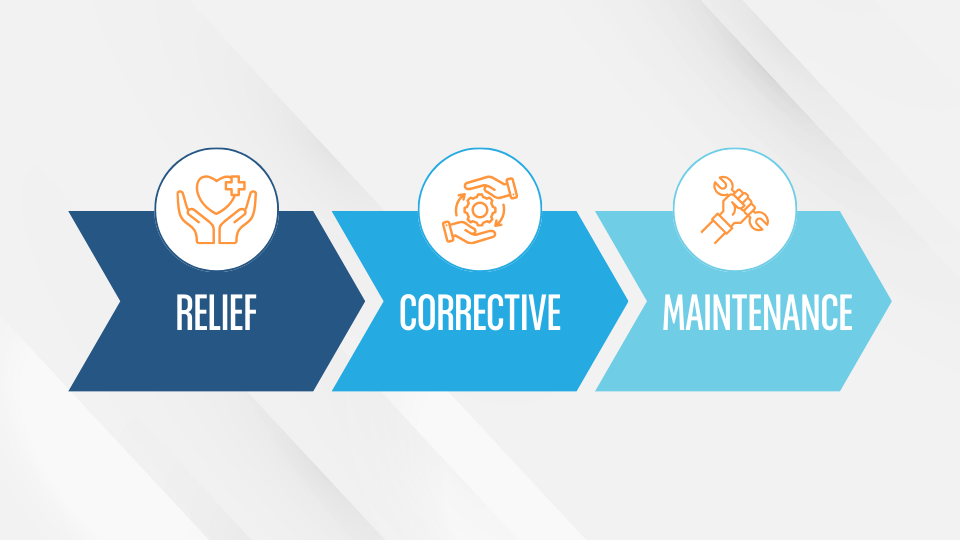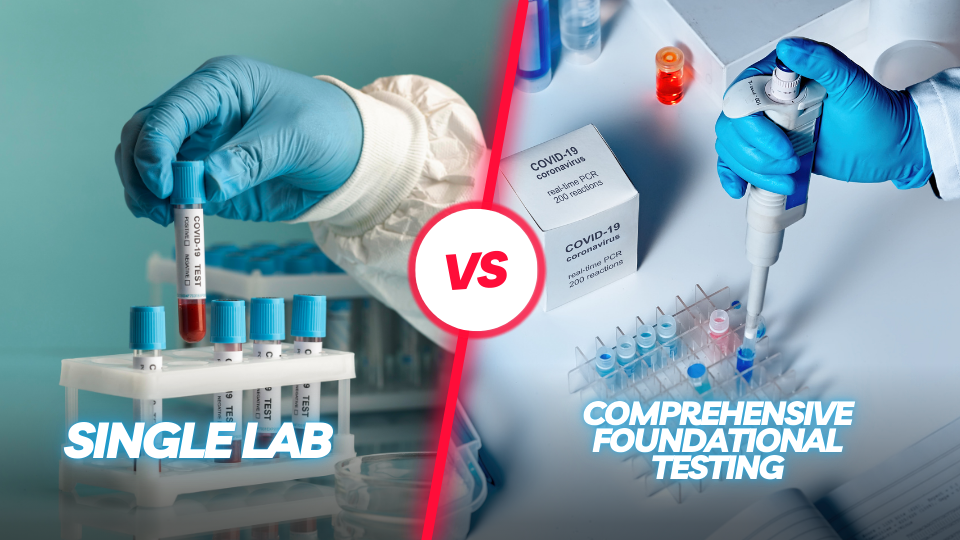How functional lab testing reveals why condition-based supplement protocols fail—and what actually works
The Facebook Group Question That Reveals Everything Wrong with Supplement Protocols
You’ve seen it dozens of times. A practitioner posts in a Facebook group: “What are the best supplements for Hashimoto’s?” or “Client has constipation…what should I recommend?”
Within hours, the comments exploded with conflicting advice. One person swears by selenium and iodine. Another warns against iodine completely. Someone else recommends a thyroid glandular. The original poster gets more confused than when they started.
Here’s what’s really happening: Everyone’s treating supplements like prescription drugs. And that’s the problem.
In conventional medicine, you diagnose a condition and prescribe a drug to manage symptoms. The drug is “nature times a thousand”—highly concentrated to overpower the symptom. When practitioners move to functional health, they naturally reach for supplements as the closest equivalent: “nature times a hundred.”
But we’re still asking the wrong question.
Instead of “What supplement for Hashimoto’s?” we should ask: “What do this person’s labs show about where function has been lost?”
That simple shift changes everything.

Why the “Pill for the ill” Mindset Doesn’t Work in Functional Health
Let’s be honest about what’s happening when clients come to see you. They’re frustrated with conventional medicine, but they still want the quick fix. It’s way easier to ask for a supplement for thyroid symptoms than to examine stress levels, sleep patterns, or that nightly glass of wine.
Think about it from their perspective:
- “I have thyroid symptoms. What supplement fixes that?”
- “I’m constipated. What pill makes me poop?”
- “I can’t sleep. What herb knocks me out?”
They don’t want to spend months unpacking where they’re carrying stress (and we’re all carrying too much stress). They don’t want to hear about sitting too long, drinking too much coffee, or examining whether they actually like their job.
And as practitioners, we respond to this because we want to help. We want to provide value and see our clients improve. When they expect progress to look like symptom relief, we start thinking like symptom relievers.
The problem? This turns us into supplement-prescribing machines instead of a source of dysfunction detectives.
How FDN Approaches Supplementation Differently
Here’s where Functional Diagnostic Nutrition® takes a completely different approach. We absolutely care about symptoms—people need to be sleeping, pooping, and out of pain. But symptoms are just our starting point, not our end goal.

Phase 1: Relief Care (Yes, We Do “Intelligent Allopathy”)
We call this first phase “intelligent allopathy,” and it’s exactly what it sounds like—the supplement for the symptom. But here’s the key difference: this is where we START, not where we STOP.
If someone can’t sleep, they need sleep support now. If they’re backed up for days, they need elimination help immediately. If they’re in chronic pain, we need to address that first.
Why? Because you can’t do the deep corrective work if someone is suffering. Relief care buys trust and gets people functional enough to engage in real healing.
Phase 2: Corrective Care (The Real Work)
Once basic function is restored, we move into corrective care. This is where we address the root cause imbalances that the labs revealed.
This phase uses our DRESS protocol:
Diet: Getting rid of the soda, fast food, processed junk, and chemicals. Coming back to organic whole foods that work for your specific metabolism.
Rest: Not just sleeping at night, but taking breaks during the day. Getting unfiltered sunlight in your eyes. Feeling sun on your skin. Reconnecting to natural cycles.
Exercise: Finding the sweet spot where movement puts money in the bank instead of taking it out. Not under-exercising, not over-exercising.
Stress Reduction: This is where all the juice is. Physical stressors like sitting too long, too much coffee, old injuries that won’t heal. Mental-emotional stuff like job satisfaction, relationship quality, financial stress. Environmental factors like what you’re putting on your body, what you’re storing food in, air and water quality.
Supplementation: Here’s where we use supplements to stimulate systems we’ve measured to be under-functioning and support systems that are over-functioning.
If your sex hormones are completely underfunded but your immune system is in overdrive, that’s corrective phase work. We’re bringing in targeted supplementation to help balance things out.
Phase 3: Maintenance (The Long Game)
After the corrective phase achieves the health goals, we transition to maintenance. This might mean backing off on diet restrictions, reducing intensive supplementation, maybe adding back some foods that were problematic before.
But here’s the reality: our environment has some permanent holes that even perfect health can’t overcome. Our soils don’t have the nutrients they used to have. We’re dealing with chemical exposures our grandparents never faced.
So maintenance supplementation is about substitution—replacing what the environment no longer provides and supporting systems that are constantly under assault.
The Bio-Individuality Problem with Generic Protocols

Here’s what everyone misses when they ask “What’s the best supplement for Hashimoto’s?”
Not all Hashimoto’s is the same.
One person’s Hashimoto’s might be driven by an immune system imbalance. Another person’s thyroid stepped back because it doesn’t have enough resources to run all the body systems at 100%.
If you just supplement based on the diagnosis, you’re going to miss this completely.
And here’s the other thing: everyone’s body is different. Their cells communicate differently. Their bodies like certain things and hate others. If you supplement according to their condition or symptoms, you miss this bio-individuality entirely.
I’ve seen clients have terrible reactions to supplements that were “perfect for their condition.” Or they feel worse and think they should just push through because that’s what the internet said would happen.
We introduce supplements one at a time. We want feedback: “This supplement makes me feel great” or “This one gives me headaches.” Then we can adjust—different dose, different timing, take a break, try something else entirely.
The Lab-First Approach: What We Actually Measure
In FDN, we don’t run labs based on symptoms. We run the same foundational labs on everyone because we want to see across the board where systems are struggling.
Cortisol: Are we making enough? Too much? At the right times of day?
DHEA: This counterbalances cortisol. Cortisol breaks us down for quick energy; DHEA builds us back up when we’re resting. If DHEA isn’t present in large enough quantities, we’re catabolic by definition.
Sex hormones: Are they all low—totally exhausted bank accounts? Low in some places but high in others? Are the pathways kinked like a garden hose?
Immune system: Is it overperforming or underperforming? Both create problems, just different ones.
Digestion: Even if you’re eating the best food in the world, can you actually use it?
Detoxification: If you’re not detoxing properly, you’re storing toxins instead of releasing them. And detoxing isn’t something you “do”—it’s something your body does naturally when it has enough resources and a clear exit strategy.
Real Example: Why Single Lab Panels Miss the Big Picture
Let me give you a perfect example of why running just one type of lab leads to incomplete solutions.
Say I’m a “hormone girl” (which I am—I love looking at hormone tests). A client comes in reporting irritability. I run hormones, see that sex hormones are low, and think, “Ah, makes sense. Low hormones can make you irritable. Let’s get some bioidenticals in there.”
But what if I’m completely missing that:
- Detox is impaired, so toxins are being stored in fat, brain, and bone, spilling into the bloodstream (definitely makes you irritable)
- The immune system is overperforming, everyone’s on a hair trigger, promoting inflammation
- There are underlying gut infections disrupting digestion, so she can’t actually use the protein she’s eating to make neurotransmitters
- All the hormone pathways are twisted up and blocked
I could supplement based on just the hormone test and see some results. But it would be a fraction of what’s possible if I measured all the foundational systems and supplemented accordingly.
The Body Knows Better Than We Do

Here’s something fundamental that FDN practitioners understand: the body has its own agenda, and that agenda matters more than ours.
I might have ideas about what the client needs. The client definitely has ideas about what they need. But the body knows more than both of us about where to spend newly available resources.
Think of body systems like bank accounts. Some are overdrawn and in debt. Others are wildly overspending by stealing from other accounts. Others are just underfunded.
Our job is to put money back in the right bank accounts in the right amounts. Then we get out of the way and let the body spend that money where it knows it needs to go.
When we direct through supplementation—”I’m going to supplement for Hashimoto’s” or “I’m going to supplement for this symptom”—we’re taking away the body’s agency in how it spends those resources.
The body knows way better than we do. That’s our commitment as practitioners.
What Practitioners Should Stop Doing Tomorrow
If I could wave a magic wand, I’d eliminate this question: “What’s the best supplement for [condition/symptom]?”
I see it constantly in Facebook groups:
- “Best supplement for dry skin?”
- “What should I give for eczema?”
- “Client can’t sleep, what works?”
This is just the prescription drug mindset applied to natural medicine. It’s still symptom suppression instead of root cause resolution.
The Question That Changes Everything

Instead of “What’s the best supplement for constipation?” ask:
“What’s the best supplement for this specific client who has this health history, these daily challenges, these lab results, this presentation of metabolic dysfunction, and these particular obstacles to healing?”
That’s the question that acknowledges the complexity of human health and the necessity of individualized protocols.
This client who can’t poop—do they have low stomach acid? Dysbiosis? Dehydration? Magnesium deficiency? Stress-induced gut shutdown? Medication side effects? All of the above?
You can’t know without measuring. And you can’t create an effective protocol without that information.
Why This Matters for Your Practice
When you base recommendations on objective lab data instead of symptom guessing, several things happen:
You feel confident explaining to clients why they need specific support and can adjust protocols based on measurable changes.
Clients trust the process because they see the science behind your recommendations, even when healing takes time.
You get better results because you’re addressing root causes instead of chasing symptoms.
You can charge appropriately for advanced diagnostic services that other practitioners can’t provide.
You build a referral-based practice because clients experience real transformation and tell everyone about it.
Getting Started with Lab-Based Protocols

The shift from symptom-based to lab-based supplementation requires proper training. You need to understand how to:
- Access functional labs without medical licensing
- Interpret complex lab panels accurately
- Design safe and effective individualized protocols
- Monitor progress objectively
- Adjust recommendations based on client responses
But the payoff is enormous. Instead of being another practitioner asking “What supplement for X?” you become the practitioner who always knows what to do next because you have the data to guide your decisions.
Your clients deserve more than generic supplement recommendations based on their diagnosis. They deserve protocols designed specifically for their unique biochemical needs.
And you deserve the confidence that comes from knowing your recommendations are based on solid data, not internet searches and Facebook group guesswork.
The practitioners who master lab-based protocols today will be the ones leading the industry tomorrow. The question is: are you ready to stop guessing and start testing?







